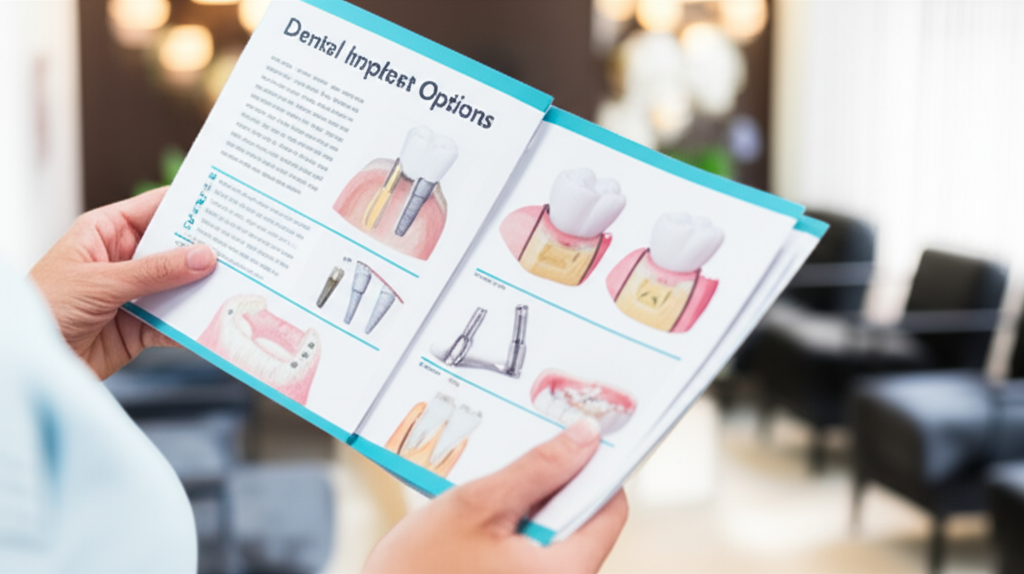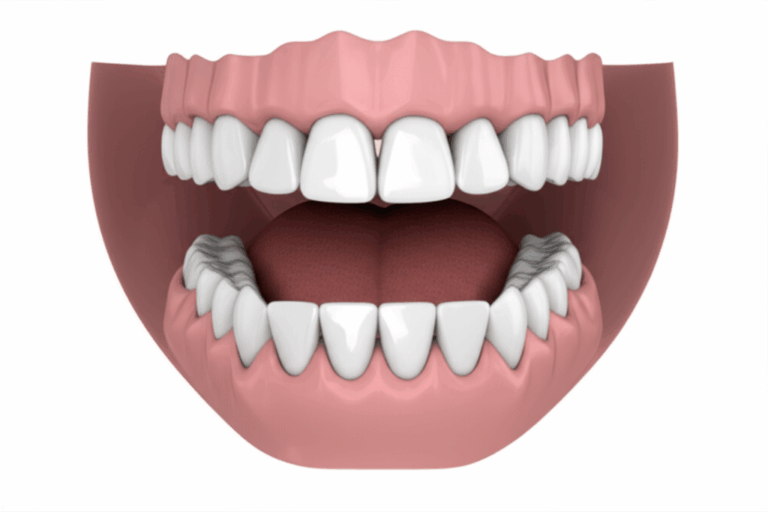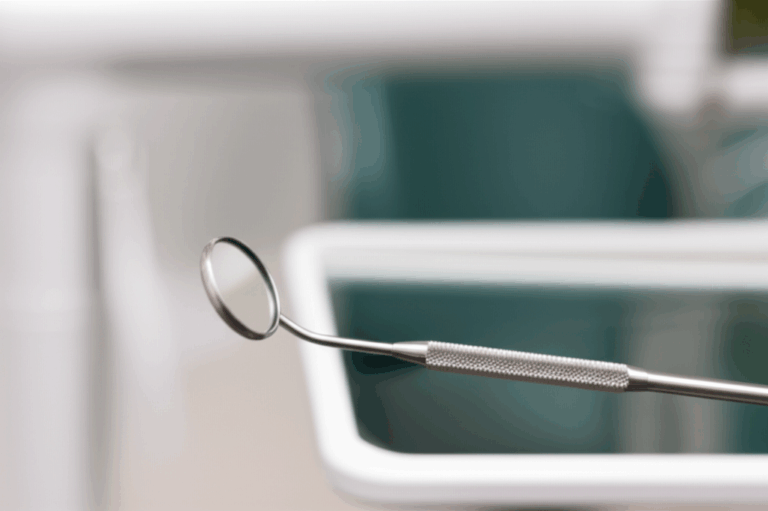
How to Shop for Dental Implants: Your Ultimate Guide to Making the Right Choice
That moment you figure out you need a dental implant? It can feel like a lot. Maybe you’re looking at a gap in your smile or tired of dentures that just don’t fit. Suddenly, questions come fast: How much is this going to cost? Where do I start? Can I trust that dentist with such a cheap price? You’re not the only one—shopping for dental implants is a big deal, and let’s be honest, it’s not like buying new shoes.
But here’s some good news: You can take charge of this. This guide will help you compare your choices, dodge mistakes, and make good, simple decisions for your health and your budget. We’ll cover everything you need to know, from what dental implants actually are to warning signs and the must-ask questions. Get the real facts—so you know what to look out for and how to get true value.
In This Article
What We’ll Cover:
- Understanding Dental Implants: The Basics for Shoppers
- The Shopping Process: What To Look At
- Your Shopping Checklist: Key Questions to Ask Every Provider
- Bad Signs to Watch Out For When Shopping for Implants
- Making Your Final Choice: Feeling Sure About Your Pick
- Conclusion: A Healthy Smile, A Smart Buy
1. Understanding Dental Implants: The Basics for Shoppers
Let’s start from the top. When you hear “dental implant,” you might picture a shiny new tooth. But a dental implant is more than just what you see. It’s a small titanium or zirconia post that a dentist or expert puts into your jawbone in a simple operation. This post acts like the root of a tooth. After it bonds with your bone (osseointegration), it makes a solid base for a crown (the part you see), bridge, or even a full row of teeth.
A. Main Kinds of Dental Implants & What They’re For
1. Single Tooth Implants
Best for filling just one gap, they work like your normal tooth root and help keep your jawbone from getting smaller where the tooth used to be.
2. Multiple Implants/Implant Bridges
Lost more than one tooth in a row? Implant bridges fill the gap without touching your other healthy teeth.
3. Full Arch Solutions (All-on-4, All-on-6, Implant-Supported Dentures)
Lost all your top or bottom teeth? “All-on-4” or implant dentures are a big help. Just a few implants hold up a full row of teeth.
4. Mini Dental Implants
Smaller and less tricky, these can be used where space is tight or to steady loose dentures. They’re not for everyone but good to know about.
2. The Shopping Process: What To Look At
Looking for dental implants isn’t just about finding the cheapest price. It’s more like shopping for a car: sure, you want a bargain, but you also want something safe, solid, and that lasts. Here’s how to check your choices:
A. Cost & Financing: Understanding What You Pay
Let’s talk money.
In the US, the average price for one implant (including the post, connector, and crown) is $3,000 to $6,000. A full row (like All-on-4) can be $15,000 to $30,000+ for each jaw. The price can be higher or lower depending on where you live, the clinic, and if you need extra work (like bone work or pulling teeth).
What’s usually included (and what’s not):
- Implant post (titanium or zirconia)
- Abutment (the connector piece)
- Dental crown or new teeth (custom-made)
- Surgery (putting the implant in and numbing you up)
- Checks like CT scans or X-rays
- Follow-up visits
Hidden costs can be:
- Bone grafts or sinus lifts (about half of folks need this)
- Temporary crowns
- Sedation or sleep medicines
- Extra scans or lab costs
How can you pay for implants?
- Dental insurance: Mostly pays for a small part (sometimes 0-15%) of the implant, calling it “major” dental work. There’s usually a yearly max.
- Health Savings Accounts (HSAs) or Flexible Spending Accounts (FSAs): You could use tax-free money for implants.
- Dental loans or payment plans: Things like CareCredit or LendingClub let you pay over time.
- Dental school clinics: Lower cost, but the work is done by students with a teacher watching.
Tip: Always get a clear, written cost sheet—make sure it says what’s in and what’s not.
B. Picking Your Dental Implant Specialist: Skill Matters
Not every dentist does implants, and not all who say they do have the same know-how. Here’s the basics:
Who can do implants?
- Oral Surgeons: Surgery experts, good for tough cases.
- Periodontists: Experts in gums and bone.
- Prosthodontists: Know all about new teeth and how you bite.
- General Dentists (with special training): Some are great at implants, but practice and training are different.
Ask about:
- Board papers and awards: Did they take extra classes in implants?
- Years doing implants: How many have they done themselves?
- Keep learning: Do they stay on top of new ways and new tools?
- Tools and tech: Do they have their own 3D X-rays, computer tools, and planning to make things safer?
- Anesthesia and safety steps: Do they give you medicine to relax, and are they ready if something goes wrong?
A good implant expert listens, answers your questions, and shows examples from real patients.
C. Implant Materials & Brands: Quality is Key
You wouldn’t build your house from weak supplies, right? Same thing here.
- Titanium Implants: The tried and true—safe, strong, and tested.
- Zirconia Implants: No metal and looks like real teeth, but they’re newer. Good for those with metal allergies, but not as much long-term proof yet.
Why do brands matter?
Big names like Nobel Biocare, Straumann, Zimmer Biomet, and BioHorizons spend money on research, quality, and sometimes give warranties. Not every dentist uses well-known brands, so always ask what brand will be used on you.
Warranty? Sometimes the brand or clinic will guarantee the implant parts. Know what’s covered and what isn’t.
D. The Treatment Plan & Process: What Really Happens
Understanding the steps can take away a lot of worry. Expect:
- First meeting: Full check with an exam, X-rays, maybe a 3D scan.
- Plan time: Clear steps, a timeline, and talk about any extra work, like bone grafting.
- Surgery day: Getting the implant; sometimes you get a temp tooth or denture.
- Healing time (osseointegration): Your bone glues to the implant over a couple months.
- Final step: The custom connector and real tooth or bridge is put in.
- Checkups and aftercare: Tips for cleaning, eating, and coming for checkups.
The whole thing—from the first visit to your final teeth—could take three to six months or more, mostly longer if you need extra bone work. Some same-day implant options are out there, but they don’t work for everybody.
E. Clinic Feel & Patient Comfort
Don’t forget how important a kind, open, and safe clinic is. Look for:
- Real, checked patient reviews (not just on their own site)
- Clear speaking, no pushy sales tricks
- Ways to help you feel calm if you’re nervous
- Good cleaning and safety—super important for any surgery
3. Your Shopping Checklist: Key Questions to Ask Every Provider
Go to your meeting ready with this list:
A. Cost & Payments
- What’s the full price, and what’s in it?
- Any extra costs for scans, making you sleepy, or return visits?
- Will my dental insurance, HSA, or FSA pay for some of this?
- What ways can I pay, and are there fees or interest?
B. Dentist’s Know-How & Skills
- What training and papers do you (or the surgeon) have for implants?
- How many implant jobs have you done yourself?
- Do you have before-and-after photos from your own work?
- How do you stay current with new methods?
C. Implant Pieces & How It Works
- What brand and kind of implant would you use for me—and why?
- Is it titanium or zirconia? If I’m allergic, is there a no-metal choice?
- Does the implant have a warranty? What does it cover?
D. Care After & What Could Go Wrong
- What should I do to take care after surgery?
- What happens during healing and what visits will I need?
- What things can go wrong, and how often has that happened to your patients?
- Who can I call if I have pain or worry after hours?
4. Bad Signs to Watch Out For When Shopping for Implants
Dental implants can change your life, but not every deal is a good one:
- Super cheap prices: If the deal seems way too good, it probably is. Some places use bad-quality implants, skip steps, or rush.
- No clear answers or sales pressure: If someone won’t answer you or pushes you to sign right away, leave.
- Vague replies: You need clear, easy-to-understand info.
- Not enough skill or papers: Check their background and training. This is your health, after all.
Going out of the country for cheap dental work can be risky: different rules, language problems, and no backup.
5. Making Your Final Choice: Feeling Sure About Your Pick
By now, you probably see this isn’t a snap decision. It pays to compare, ask hard questions, and listen to your gut.
Here’s How to Pick:
- Compare all the written prices and plans side by side.
- Don’t just go by price. Look at skill, tools, and reviews.
- Notice how you feel at the office. Do they listen? Do they explain without confusing words or sales pressure?
- Check your options. For example, you might want to ask if your new tooth will come from a well-known digital dental lab or a trusted zirconia lab. The lab’s work can change how your new teeth look, feel, and last.
- Think about labs for other jobs, like those made by a dental ceramics lab, if you want the best look.
- Read dental implant reviews and stories from real patients.
Great care might cost more at first, but usually saves you pain, worry, and fixes later.
6. Who Is a Good Candidate for Dental Implants?
Dental implants give a strong, natural fix for lots of people, but they’re not for everyone. Here’s how to know if you’re a good fit:
- Healthy gums and enough bone: Your jaw needs solid bone and healthy tissue to hold the implant steady. If a tooth has been missing awhile, you might need a bone graft.
- No unchecked health problems: Things like uncontrolled diabetes, brittle bones, or immune troubles can make healing a problem.
- Don’t smoke, or willing to quit: Smoking makes implants much less likely to work.
- Good cleaning habits: You must keep the area clean—implants can fail if you get a lot of germs there.
Quick honesty check:
If you grind your teeth, have some illnesses, or can’t keep your mouth clean, your dentist may suggest other options or extra steps.
7. Healthy Takeaway: Make Your Implant Journey a Success
Let’s say it one more time. If you remember nothing else, keep this in mind:
- Dental implants are an investment—in your smile, your health, and yourself.
- Don’t only look at price; pick for quality, good name, and long-term value.
- Ask lots of questions about the dentist’s skills, materials, cost, and follow-up care.
- Know the steps, the risks, and what you need to do to keep your implant healthy.
- Be careful of any deal that seems too cheap.
And most important? Trust your gut. You should feel safe, respected, and well informed every step of the way.
Quick FAQ
Q: Are dental implants worth it?
A: For most, yes. Implants give a strong, real-feeling fix that saves your jaw and lets you eat, talk, and smile well for many years.
Q: How long will dental implants last?
A: With good care and regular checkups, implants themselves can last for decades or even your whole life. The crowns or bridges might need a swap after 10–15 years.
Q: Does insurance pay for implants?
A: Most plans pay little or nothing for the implant post but might help with exams, crowns, or pulling teeth. Always check your policy.
Q: What if I can’t get implants?
A: No worry. Bridges and dentures are normal, simple fixes. Ask your dentist about dental problems and what could work.
Conclusion: A Healthy Smile, A Smart Buy
Shopping for dental implants can feel scary at first, but you now have what you need to get through it. Bring the right questions, know what matters to you, and pick quality, and you’ll get a fix that brings back your smile—and keeps it great for years.
Ready for the next step? Set your meeting, take your list, and get started on the road to a stronger, better, and more confident smile.
References:
- American Academy of Implant Dentistry (AAID)
- American Dental Association (ADA)
- Grand View Research: Dental implant market data
- Reviews of clinical implant dentistry
(For more on labs and tools, see info about zirconia lab, digital dental lab, dental implant laboratory, and dental problems.)
Don’t forget: You’re not only getting a new tooth—you’re investing in your confidence and well-being. And that’s worth getting right.








